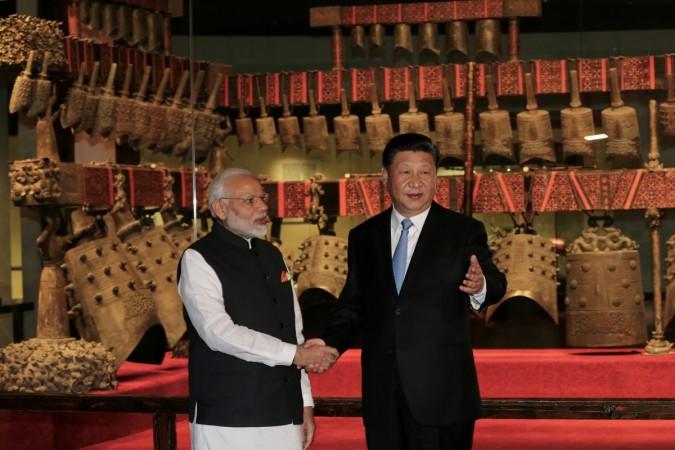
China's technical veto of an India-inspired United Nations Security Council (UNSC) move to blacklist Jaish-e-Mohammed and its leader Masood Azhar once again exposed its extreme vulnerability to Pakistani Inter-Services Intelligence's (ISI) blackmail, analysts say. The fact that the terrorist leader has claimed responsibility for the February 14 Pulwama attack in Jammu and Kashmir killing 43 paramilitary personnel and pushing nuclear-armed India and Pakistan to the brink of war after Indian Air Force's Balakot strike did not deter Beijing from blocking the motion. The move to proscribe JeM was initiated by the US, UK and France, the three permanent UNSC members, but China placed a technical hold on the resolution that is initially valid for three months but may be extended further.
G Parthasarathy, international affairs analyst and India's former ambassador in Islamabad, has said the compulsions of China in backing Pakistan are understandable. He said on broadcast media that the recent UN resolution should still be considered a big success for India as 14 of the 15 members including four permanent members except China stood with India.
China's eagerness to shield Masood Azhar, a strategic asset the ISI has nurtured over many years, arises from its dilemma of having painted itself into a corner with no way out without damaging its own work of a long time, defence analysts say. China cannot ignore the fact that its personnel deployed in thousands across different projects in Pakistan are soft targets for any ISI-inspired terror attack. There have been instances of terror elements targeting Chinese engineers working in the hundreds of strategic and economic projects that China is financing in Pakistan.

In the past, Chinese personnel working in the Gwadar port of Baluchistan province were repeatedly abducted for ransom or killed. There are thousands of Chinese experts working on the $62-billion China-Pakistan Economic Corridor (CPEC) project, which offers China direct access to the blue waters of the Indian Ocean. Chinese tourists visiting the scenic Gilgit-Baltistan region have also borne the brunt of terrorist wrath when the Pakistani deep state has apparently looked away. At some point, Beijing became so worried about the security situation in Pakistan that it forced Pakistan to let its own forces provide security cover for personnel working in some vital projects.
Though Beijing has on several occasions criticized Islamabad for its failure to rein in terror elements based in Gilgit-Baltistan creating problems in its Xinjiang province, successive Chinese governments have been silent about the Pakistan-based terror elements tormenting India. Beijing has a genuine problem of Islamist-inspired insurgency in among the Uighur Muslims whose Xinjiang home connects with the CPEC.
Chinese President Xi Jinping is invested heavily in the prestigious One Belt One Road (OBOR) initiative and has to tread a cautious line as he cannot afford to antagonize the ISI or the JeM. Either of them can easily disrupt the hub the of OBOR which is the China-Pakistan Economic Corridor (CPEC). The CPEC is also the vital link between OBOR and the 21st-Century Maritime Silk Road project that links Southeast Asia, Oceania and North Africa through the contiguous shipping routes of South China Sea, Indian Ocean, and the South Pacific Ocean.
China periodically warns its nationals in Pakistan likely "terrorist attacks". According to an NDTV report of December 2017, China warned the workers who were working on Xi's OBOR development of imminent terror attacks. "It is understood that terrorists plan in the near term to launch a series of attacks against Chinese organisations and personnel in Pakistan," the Chinese embassy in Pakistan said in a statement on its website.
Still, Beijing has been emphasising "responsible and serious discussions" to resolve the matter, rather than proscribing the terror fountainheads in Pakistan. "Only by making a decision through responsible and serious discussions can we resolve the issue in a sustainable manner," Chinese foreign ministry spokesman Lu Kang said in a media briefing in Beijing ahead of the deadline for the resolution to go through, flagging his country's intention to thwart the resolution.
This was the fourth time that China blocked on technical grounds UNSC bid for designating Masood Azhar as a global terrorist. Kang said Beijing saw recent escalation between India and Pakistan as "not conducive to the peace and stability in South Asia" and said it mediated to defuse the situation. However, Beijing did not find it necessary to prevent similar situations from developing in future, especially when Masood Azhar has threatened more attacks in Jammu and Kashmir.
US President Donald Trump has been critical of Pakistan's record in containing terrorism from its soil and asked Beijing to help rein in Islamabad. However, China has resisted global pressure so far. The closest Prime Minister Narendra Modi's government came to some concession from China was when it let Pakistan be kept on the 'grey list' of the UN's Financial Action Task Force (FATF) that censures nations found to be failing to control funding to terror outfits. Even that concession came after External Affairs Minister Sushma Swaraj wound down opposition to excluding Pakistan's name from a joint statement.








